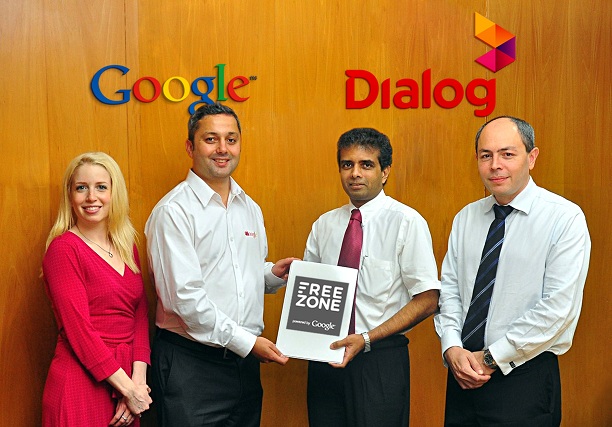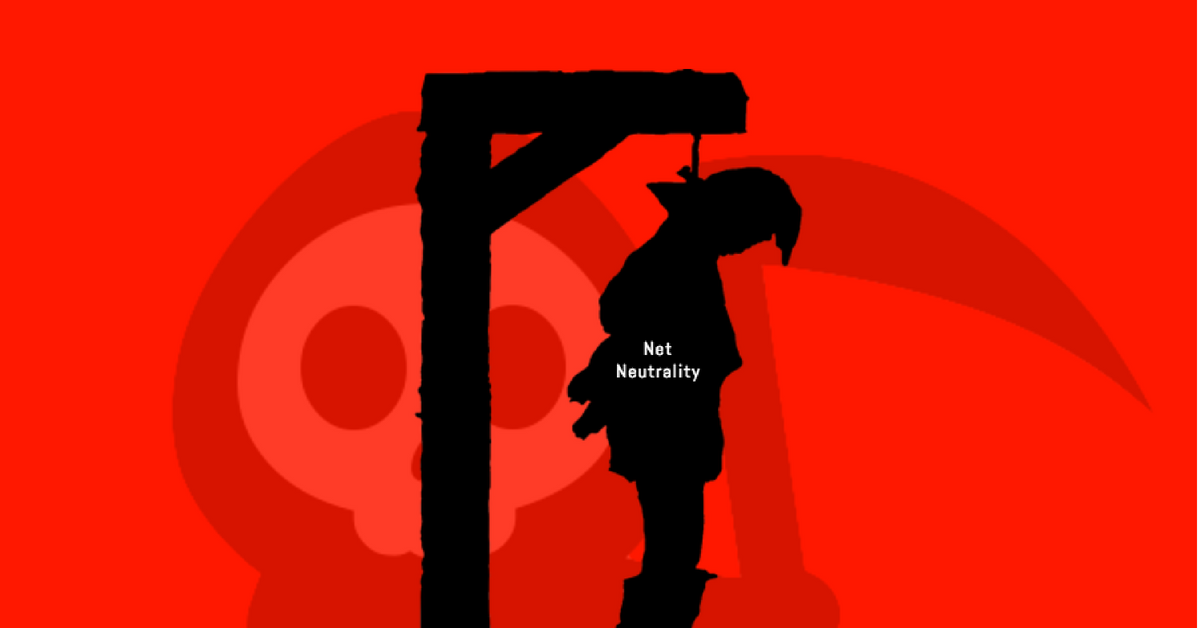Net Neutrality is one of the principles that ensure we have a free and fair internet today. However, in recent years, it has come under attack by Ajit Pai – Chairman of the U.S. Federal Communications Commission (FCC). Many still stand against him, including Sir Tim Berners Lee – the inventor of the World Wide Web.But this is in the United States, what’s the state of Net Neutrality in Sri Lanka? Sadly, it died a long time ago right in front of us.
Hold up. What exactly is Net Neutrality?
According to Google, Net Neutrality is defined as, “the principle that Internet service providers should enable access to all content and applications regardless of the source, and without favoring or blocking particular products or websites.”
This means that your internet provider absolutely cannot intentionally block, slow down, or charge you for accessing specific websites and online content. So while Dialog may own wow.lk, they can’t do anything stop you from getting a better deal on eBay or Amazon. That’s what net neutrality means to you.
In the United States, net neutrality was officially enforced by the FCC. This was when it reclassified broadband as a common carrier under Title II of the Communications Act of 1934 and Section 706 of the Telecommunications Act of 1996.In other words, the FCC declared that internet in the US was a utility rather than a luxury. Thus, net neutrality was protected in the U.S by law.

Currently, the FCC under Ajit Pai is seeking to repeal these regulations. Thankfully, he’s not unchallenged as we found out recently when the U.S. Senate went against these efforts. But here in Sri Lanka, there are no such laws protecting net neutrality. And as such, our internet providers can and have trampled on this concept.
The latest culprit is Airtel
On the 25th of May, the Wijeya Newspapers announced that it had formed a partnership with Airtel. With this partnership, the online editions of Daily Mirror, Lankadeepa, and Tamil Mirror would be free to access for all Airtel subscribers. “The young reader accesses the news online, which is why we form such industry partnerships to enhance the customer experience,” said Jinesh Hedge – CEO/MD of Airtel Lanka.

Granted, this might not be truly fee. As both Wijeya Newspapers and Airtel are private organizations. Therefore, it is possible that a private agreement was signed between the two parties where one pays the other. But does that actually matter? No, it doesn’t!
This is a direct violation of net neutrality. With this move, Airtel is officially prioritizing and favoring traffic to Daily Mirror, Lankadeepa, and Tamil Mirror over other websites. Yet, this happened right under our noses without any fuss whatsoever.
But this isn’t the first time Sri Lanka stabbed net neutrality
Back in 2013, Dialog formed a partnership with Google. This partnership made Google Search, Gmail, and Google+ accessible to Dialog users free of charge. Similarly, it also formed a partnership with Wikipedia to make the website freely with Wikipedia Zero. While we weren’t cheering, we did think that free access to these services was useful.

Fast forward to today, we have to admit that we accepted a net neutrality violation that happened right in front of us. Of course, times have changed. Dialog’s Freezone no longer offers free access to Google services. Instead, it’s become a place where you can get free data. Similarly, Wikipedia has shut down the Wikipedia Zero initiative having admitted that it violated net neutrality.
Yet, the more things change, the more they stay the same. The SMS service Dialog created for Wikipedia Zero is still active at the time of writing. The only thing that’s changed is that it redirects you to the main Wikipedia website, which isn’t free. But this isn’t a violation of net neutrality. This is just Dialog saying it doesn’t care about net neutrality.

And it’s made that clear when iFlix came to Sri Lanka. When the Malaysian based streaming service came to Sri Lanka, Dialog had formed a partnership with it. Once again, Dialog offered free access to the service for 12 months. All you had to do was download the Dialog ViU app. Even today, Dialog still offers two months’ free access to iFlix. Once again, Dialog continues to violate net neutrality.
Why is this net neutrality stuff such a big deal?
It’s such a big deal because, without it, companies can do whatever they want. Giving them such freedom could undermine what makes the internet powerful. Of course, one can argue that it’s beneficial to provide services we use on a daily basis like Google Search as Dialog did. After all, making Google freely available means we have free access to information right?
No, we don’t. There’s no such thing as a free lunch or a free service on the internet. We’ve already learned this the hard way with Facebook after Cambridge Analytica. When we give internet providers the freedom to offer services we rely on for free, they will soon abuse it. This is what we’re seeing now with iFlix and Dialog.

By violating net neutrality, Dialog is giving iFlix an unfair advantage. Sure it’s only the subscription fee that’s waived off due to this partnership. The normal data charges still apply. Yet, if a company in Sri Lanka launched a similar video streaming service today unless they have good original content, iFlix would still pose an unfair challenge to them. Why? Because iFlix is free for the customers of the biggest telecom operator in the country.
Granted, we live in a society that still believes in illegally downloading its TV shows and movies. But by ignoring such instances in front of us, we stand to lose the most. Why? Because it stifles competition. An uneven playing field in the market for digital services will mean that we pay more in the long run.
But that’s not even the scariest part
The internet is powerful because it’s an information superhighway. Need a cab? It lets you share your exact location with the closest one. Donald Trump changes his mind about meeting Kim Jong Un? You’ll know instantly.
Information is power. With the internet, you can access information from a variety of sources. So for any issue or idea, you can easily obtain different perspectives. Thus, you are able to form a more powerful opinion. But if you let net neutrality die then your power disappears.

Sri Lanka isn’t a country that’s known for a government that respects the concept of free media. Irrespective of who’s in power, the only thing the media should be doing is to sing praises. Under no circumstances should it criticize and inform the people about the issues plaguing the country. That’s something for the politicians to look into after their third lunch.
And that’s exactly why the partnership between Airtel and Wijeya newspapers should terrify everyone. When net neutrality dies, we let the internet providers the power to decide where we get our information from. And we can be sure that this information will be what suits the agendas of those in power.

After all, our internet providers will happily oblige any request from the government. Take the days of Mahinda Rajapaksa. Any media outlet that was critical of the government would’ve been blocked. That’s if it was lucky. The unlucky ones would see its journalists take a trip in a white van. Things have only marginally improved since.
Is this media freedom? මේකද යහපාලනය?
The white vans have disappeared. Yet, despite running on a platform for good governance and media freedom, President Maithripala Sirisena is not someone that takes criticism well. He’s claimed that he’s the biggest victim of mudslinging on social media. And while playing the victim card, President Sirisena has made it clear that he wants to regulate social media. That shouldn’t come as a surprise to anyone following the unpopular Facebook ban.

But Facebook isn’t the only website he’s ordered to be blocked. As Groundviews has reported, it was the President’s office that ordered the TRCSL to have Lanka E News blocked. The official reasoning was because it had apparently been publishing false articles about the President and family members.
While the articles themselves were questionable, blocking the website outright without seeking other legal avenues is terrifying. And as we’re seeing with the TRCSL’s sudden activity against TNL and SLBC, such actions might not be limited to websites. What these actions tell us is thatdespite running on a platform to promote media freedom, President Sirisena has resumed using the tactics of his predecessor.

But while Maithripala Sirisena throws a tantrum about being criticized, which he should’ve expected when he ran for President, it’s ironic that Prime Minister Ranil Wickremesinghe stands in support of net neutrality.
Back in 2017, while speaking at the Global Conference on Cyber Space in New Delhi, he said, “Net neutrality lowers the barriers of entry by preserving the Internet as a fair and level playing field and helps small businesses and entrepreneurs to thrive.”
The Prime Minister also added, “Similarly the open Internet facilitated by Net neutrality allows marginalized and oppressed segments that are not adequately represented in mainstream media to tell their stories and to mobilize for justice as we have seen in recent times.”
Actions speak louder than words
As history has proven repeatedly, words are cheap. While one side of the government says it considers net neutrality important, its actions say otherwise. And can we really blame them? We the people that voted them in, accepted every violation of net neutrality that occurred right in front of our eyes. It didn’t matter whether it was Dialog, Airtel, or any other internet provider.
Why did we stay silent as net neutrality was attacked? Because in Sri Lanka, nobody can resist a free lunch. And by the time we realize that there’s no such thing as a free lunch, it will be far too late to do anything. While we’re not in such a dystopia yet, it doesn’t look like it’s in the far future.





We never had net neutrality in Sri Lanka because it’s not addressed by law. So it’s not a surprising new thing that companies take advantage of it, it’s obviously good for them. There’s no violation of net neutrality if it doesn’t exist in the first place. What we should be trying to do first of all is get the necessary laws passed, because without it all this talk is irrelevant.
Net Neutrality laws in the US, EU, Singapore and India have specific treatment on paid prioritisation/specialised services (Dialog-Iflix, Airtel-Wijeya newspapers), zero-rated services (Facebook Zero/Wiki Zero), and traffic management.
On paid prioritization, this is allowed in Singapore as long as there is no blocking/throttling of other substitutable services. The US and EU also make exceptions to this rule.
On zero rating, this was found to be a useful way to draw people to use paid internet services, and connect those previously unconnected. However, due to the outcry from privileged net neutrality proponents (whose mantra is no internet is better than limited internet), these services are no more offered in most markets. Most laws do not even address zero-rating and it is in fact allows by the FCC (US) on a case by case basis.
On traffic management, net neutrality proponents may say all data packets should be treated equally, but in reality, that is not possible and operators have to manage traffic to ensure certain types of content are prioritised (streaming services, video conferencing, health care and emergency services, etc). The US, EU, Singaporean and Indian laws make exceptions for this type of traffic management, to ensure that regulated levels of Quality of Service are met. Traffic management and prioritisation do not necessarily mean operators will degrade the service quality of other content on their networks.
So net neutrality laws are not the panacea to ensuring fairness on the internet. Most regulators recognize it is hard to ensure 100% net neutrality and keep the internet working.
In Sri Lanka, in the absence of net neutrality rules, one cannot blame operators for building partnerships with third party content providers (such as iflix and newspapers) to give their subscribers a better range of services. One could argue that iflix has improved the quality of streaming TV in Sri Lanka. And in the end, nothing stops another operator from partnering with Netflix or some other streaming service to provide more options for Sri Lankan consumers. The consumer is the beneficiary in this case.
So According to my opinion, Google’s freezone and iflix are not the problem. We should highlight giving a fast access routes for some services and block their competitors. I think this wasn’t happened yet. Dialog never blocked or slowed netflix or any other services to give more opportunity to iflix. Even ISPs never took more cost to browse selected sites as TV Packages ( Peo , Dialog). So still there is a some kind of ‘Net neutrality’
So aren’t there any proper laws on net neutrality in Sri Lanka?